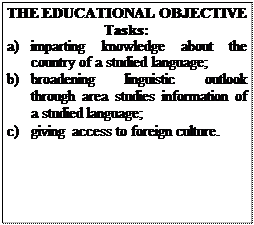Student Autonomy As A Goal In Language Learning
Autonomyis a capacity - for detachment, critical reflection, decision-making and independent action. For autonomy to increase, the student needs to develop a particular kind of psychological relation to the process and content of learning.
An autonomous learner is able to concentrate on his or her learning, thinking and the goal-oriented discovery. If the learner is concerned with avoiding the threatening feelings of failure or with pleasing the teacher or the peers, on the other hand, his mind is occupied by the distracting thoughts and sensations and learning becomes less successful than it could be under more favourable inner conditions. Fostering student autonomy is thus a question of encouraging the socially responsible and independent orientation to learning and providing opportunities for the students to exercise their own decision-making during the process.
Student autonomy is often discussed in terms of a psychological, innate capacity to self-direct one's own learning and take more responsibility for the decisions about what contents to learn and how to monitor one's learning processes. The view of personal autonomy emphasises the sense of individual self-direction, developing and strengthening the confidence of the individual.
Autonomy grows as students become more critically aware of the social context of their learning and the constraints involved in learning. They assume a greater control over the contents and processes of their learning. In this sense, learner autonomy is part of the individual's moral growth and self-government to become a socially responsible person and citizen. Being an autonomous person means respecting one's dignity as a moral person and valuing others by treating them with dignity.
students come to language classes with different beliefs and assumptions of their own role as language learners. Based on their personal learning biographies and experiences, they have different notions about what is good language learning, what properties good language learners have, and how good they are themselves at language learning. While a large number of students are comfortable with a responsible role as self-organised and autonomous learners, some prefer a more dependent role. They expect the teacher to give them the facts of the language and explain the mistakes directly rather than asking them to find them out for themselves. Teachers thus need to be prepared to meet with suspicion and resistance from some of their students.
In order to be able to take charge of their learning and to extend their skills students need to be actively involved in the whole learning process. The teacher needs to work on a wide range of knowledge, attitudes and skills with her students if she wants to promote independent learning:
• Justifying and legitimising independence as a learning goal and thus encouraging students to take a more independent attitude to their learning
• Convincing students that they are capable of assuming independence if they make a serious effort to learn, by facilitating them to gain successful experiences in doing so
• Helping them to understand language as a linguistic system and develop their communication skills on their own
• Helping students to understand more about language learning and develop an awareness of what is involved in the process
• Enabling them to cope with emerging problems in communication and learning and tackle with the obstacles
• Helping students to develop explicit learning strategies to plan, monitor and reflect on their learning
• Providing students actual opportunities to exercise greater autonomy in their language learning
Self-directed language learning poses great demands on the student's ability to cope with unknown situations and accept uncertainty about one's learning. Acceptance of ambiguity is particularly necessary in foreign language learning which is bound to involve unpredictability and novelty because of the new linguistic and cultural system. New learnings and understandings are always potentially threatening. Students with high self-esteem are generally less likely to feel threatened or discouraged by such feelings. They are more willing to take risks and try new and unpredictable experiences.
Intercultural communication entails increased demands on the student's capacity to handle ambiguity in language learning and use. Whereas communicative competence relates primarily to the language user's knowledge and skills in communicative situations, intercultural competence also focuses on his or her personal and social abilities.
To develop the attitudes and abilities discussed above, the teacher needs to facilitate students to increase their self-understanding and awareness of themselves and the learning tasks. Autonomous language learning involves the whole person, including the emotional, social, physical, cognitive and spiritual aspects of personality.








